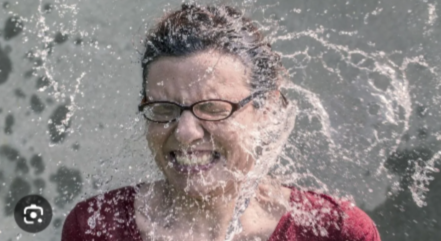Cold Water Therapy Shows Breakthrough in Treating Stroke, Paralysis, and Diabetes
In an exciting medical breakthrough, researchers have discovered that cold water therapy, also known as cryotherapy, could offer new hope in the treatment of stroke, paralysis, and even diabetes. While traditionally used for muscle recovery and sports rehabilitation, recent studies have uncovered its potential in promoting neural and metabolic health.
A study conducted by a team of neurologists and medical scientists at a leading research institution found that cold water immersion may significantly aid in the recovery of stroke patients. The cold temperatures were shown to stimulate neurogenesis—the growth of new neurons in the brain—and enhance blood flow, which is critical in the early stages of stroke recovery. By constricting blood vessels and reducing swelling in damaged brain tissue, cold therapy allows more oxygen-rich blood to reach affected areas during the warming phase, promoting healing.
For patients experiencing paralysis due to spinal cord injuries or stroke, cold water therapy has also demonstrated promising results in reactivating motor neurons. Researchers have seen improvements in motor control and muscle reactivation after consistent cold exposure therapy, suggesting that it could help in rehabilitating those suffering from partial or full paralysis. The body’s response to cold triggers electrical impulses in the nervous system, which can help “rewire” damaged areas and restore some degree of movement.
In a surprising development, cold water therapy has also shown potential in managing diabetes. Studies revealed that cold immersion can activate brown fat, a type of body fat that burns energy to generate heat. This activation leads to improved insulin sensitivity and better glucose regulation, which are critical factors in managing Type 2 diabetes. As brown fat becomes more active in cold environments, it aids in breaking down sugar more efficiently, reducing the need for excess insulin.
Dr. Maria Thompson, lead researcher in the study, said, “This could revolutionize the way we approach chronic conditions like paralysis and metabolic disorders. The body’s natural response to cold can now be harnessed to enhance healing and recovery in ways we previously didn’t think possible.”
While these findings are still in the early stages, clinical trials are underway to test the long-term benefits of cold water therapy in stroke, paralysis, and diabetes patients. If successful, this could lead to non-invasive, cost-effective treatment options that provide new hope for millions worldwide.



